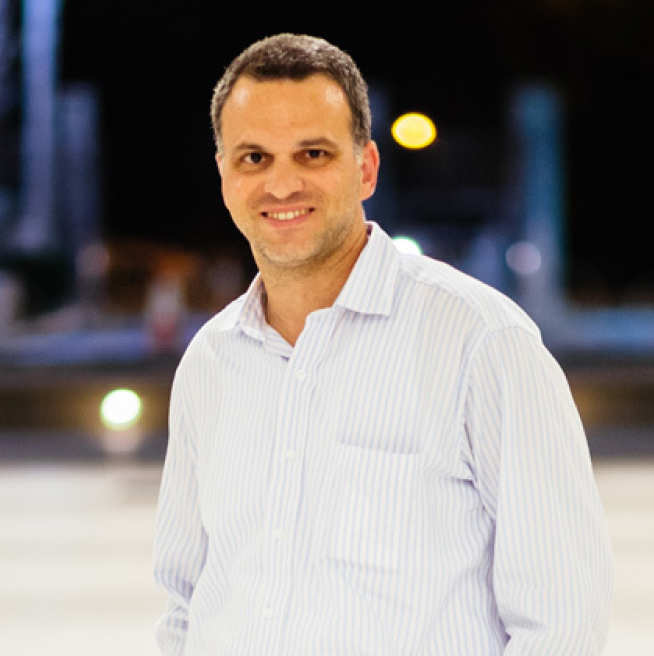
After working in hospital-based laboratories in London for seven years, Gabriel Georgiades (BSc BioChemistry 2000) returned to Cyprus and set up his own clinical laboratory performing routine and specialised blood tests. We caught up with him about his journey so far during a recent Business School event on the Cypriot economy.
Can you tell us about your studies at Imperial?
"I graduated in 2000, after following a BSc in Biochemistry for three years (1997-2000). I have to say I found the course to be quite hard compared to feedback from other people attending other courses at Imperial! But I learnt a lot - like how to develop an investigative approach to almost everything taught by our lecturers and tutors and this hugely improved my critical thinking skills. I remember that the course (and especially the coursework) was designed in such a way to make you put a lot of effort into researching the relevant topics and learn a lot on your own. Following the course, I then undertook an MSc degree in Haematology in Bristol, and worked as a biomedical scientist in hospital-based laboratories in London."
Tell us a bit about the work you’re doing now
"After working in hospital-based laboratories in London for seven years (until 2008), I returned to Cyprus and set up my own clinical laboratory. In the lab, we perform routine and specialised blood tests. I’m looking to expand the business and I prioritise offering excellent quality of services to my clients. I feel proud that I was able to set up my own business, and I’m grateful for my time at Imperial because I feel that I got immense experience from a top UK-based institution and this helped me to develop both socially and professionally."
What does a typical day look like?
"As a health service provider, I am on "stand-by" 24/7. This is because we often deal with urgent requests from clients, and the laboratory results are a vital part of the diagnosis and further clinical management of the patient. So, we may be requested to provide a service at non-routine times such as late evenings, or even on a Sundays.
Usually during the week I start work at 07.30, and I spend the morning performing phlebotomy myself according to what tests are requested by clinicians or insurance companies - basically, that means taking blood from clients. At the same time I try to catch up with my emails, which is definitely not always possible!
Then I usually go into the laboratory to set up the analysers for the blood tests requested. I have to prioritise the workload according to urgency of results, so I divide the specimens collected to "routine" and "urgent". The target is to perform the urgent requests by midday and "release" (fax or email the results) to the clients.
In the afternoon, I usually see clients who come in to pick up their results and discuss anything that they are concerned about, before visiting their clinician.
Finally, I catch up with the rest of my emails and paperwork (such as insurance claims) for the day, and I am usually finished by 18.00. We do provide a routine service on Saturday mornings as well, so it’s at least a six-day work week for me!"
What would be your advice for current students?
"Choose a career that satisfies you and get as much work experience as possible by working in different jobs (if possible), that are relevant to your career. Up to the end of my second year at Imperial, I felt that I did not know what career is best for me. I believe that the courses offered by Imperial are designed to broaden your horizons. My advice to current students would be to listen to what current academic staff and career advisors have to say about future jobs and to stay in academia only if you really like research. You can investigate what's best for you by making informal visits to potential future employers (while being a student) and use the powerful Imperial College London "brand" to secure a job that's best suited for you. I believe that this brand is very powerful all over the world these days."
What’s the most difficult decision you’ve ever had to make?
"One of the most difficult decisions was deciding whether to do a PhD and stay in academia, or go for an MSc degree in an area that I really liked and aim to work in that sector for a number of years to gain as much work experience as possible. I obviously went for the latter!"
Gabriel's advice to current students
"Choose a career that satisfies you and get as much work experience as possible by working in different jobs that are relevant to your career. Listen to what current academic staff and career advisors have to say about future jobs and stay in academia only if you really like research. You can investigate what's best for you by making informal visits to potential future employers (while being a student) and use the powerful Imperial College London 'brand' to secure a job that's best suited for you. I believe that this brand is very powerful all over the world these days."